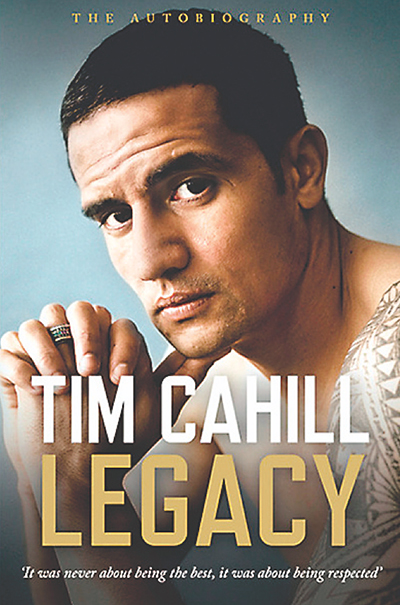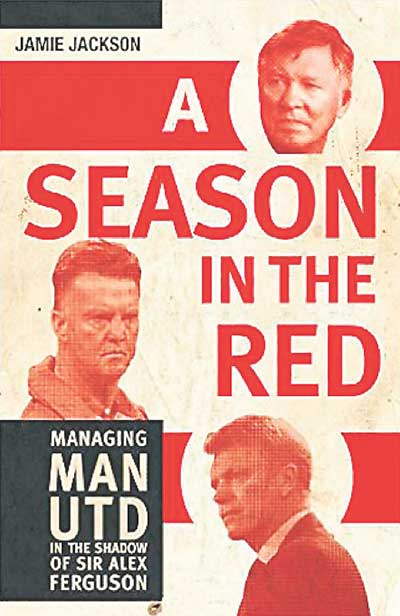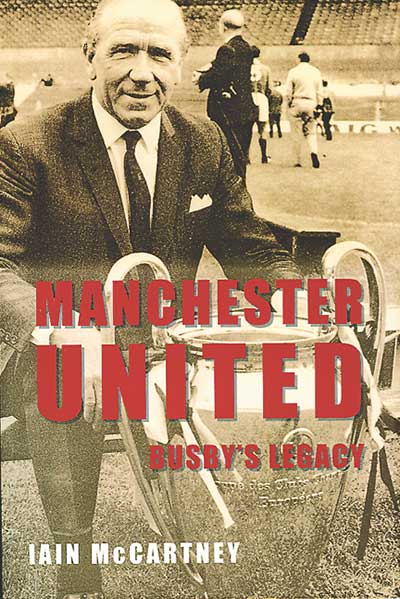Search: ' David Moyes'
Stories
There were mixed feelings from our writers about Euro 2016, while the child sex abuse scandal and Chapecoense plane crash were low points for many
 The autobiography
of Tim Cahill
The autobiography
of Tim Cahill
by Tim Cahill
HarperSport, £18.99
Reviewed by Jamie Rainbow
From WSC 350 April 2016
When Tim Cahill’s contract with Shanghai Shenhua was terminated, a number of A-League clubs approached the midfielder offering him the chance to finish his playing career in Australia. But, as he reveals in Legacy, he’d already snubbed an earlier return to his homeland for commercial reasons. The 36-year-old, fast approaching the end of his playing career, was already thinking about life after football. Or, to use Cahill’s own slightly nausea-inducing phrase, he had to “strategize as a businessman”.
 Managing Man Utd in the shadow of Sir Alex Ferguson
Managing Man Utd in the shadow of Sir Alex Ferguson
by Jamie Jackson
Aurum Press, £18.99
Reviewed by Joyce Woolridge
From WSC 345 November 2015
As Louis van Gaal celebrated his 50th game in charge of Manchester United with yet another defeat by Swansea, and the annual farce that marks United’s summer transfer window dealings escalated with the “failed” David de Gea sale, A Season In The Red may have been better written at the end (or however far the Dutchman makes it) rather than the beginning of this season. Although the book surveys both David Moyes’ and Van Gaal’s attempts to manage the “impossible job… in the shadow of Sir Alex Ferguson”, the lion’s share of the pages goes to the present incumbent and as his stock, and United’s fortunes, continue to yo-yo wildly, the tale remains half told.
The most interesting and illuminating, but all too brief, chapter deals with neither of Ferguson’s two main successors, but is about Ed Woodward, executive vice-chairman. He is the man perceived to be responsible both for uncovering vast new sources of income through worldwide regional sponsorship deals and United’s continual embarrassment in the transfer market. Jamie Jackson, the Manchester football correspondent for the Guardian and the Observer, describes Woodward’s very existence as “a cause for curiosity and celebration in the joyless, lacking-piss-and-vinegar world of elite football” and characterises him deftly as someone who appears determined to enjoy every minute, bustling with energy, unusually approachable in “a trapeze-wire act that he manages to portray like a Sunday morning stroll for coffee”.
However, both the accounts of Moyes and Van Gaal fail to spark. This is partly because of what the book is – a series of observations gathered by Jackson while attending press conferences, reporting on matches, accompanying last year’s pre-season tour in the US when Van Gaal took over the reins and in the few “intimate meet-and-greets” with the press which United’s managers deign to allow. What it doesn’t, and indeed in all fairness can’t, draw upon are personal interviews with the protagonists. So Jackson fills the gaps by imagining what it is like to be David Moyes in his office, waiting to be given the coup de grâce, what it is like to be Moyes on his first day and so on.
There are revealing sections such as when Moyes relaxes talking to the Manchester press over dinner, letting his guard slip, and a perceptive analysis of Ferguson’s replacement’s penchant for choosing the wrong words so often, hoping for, rather than expecting results. Van Gaal’s entertaining performances for the press are also well observed. But Jackson is prone to rambling and to say the same thing, wearingly, in several different ways. Moyes is “the number one around here, numero uno, the gaffer, Le Grand Fromage”. Plus the Splitting. Sentences up. Into sections and inserting interludes which are possibly meant as poetry: “Sir Alex Ferguson, David Moyes, Shadows falling, Shadows falling.”
Stylistic tics aside this is a serviceable, if premature, rendition of the story so far, though without much detailed analysis (particularly needed in the case of Moyes, accused by some of tactical ineptitude) of what happened on, rather than off the field. Ryan Giggs’s brief tenure, potentially so revealing, merits far more than the single sentence devoted to it.
 by Iain McCartney
by Iain McCartney
Amberley Publishing, £16.99
Reviewed by Charles Morris
From WSC 339 May 2015
A book about managerial succession and how a club attempts to replace an outstanding, long-serving supremo is timely, particularly in Manchester United’s case. Iain McCartney’s book follows his Rising from the Wreckage: Manchester United 1958-1968, which charted the club’s recovery from the Munich air tragedy to become the first English team to win the European Cup.
Rapid decline, however, is the theme of his sequel as he relates the club’s dismal failure to replace Matt Busby between 1968 and 1974 – when they were relegated from Division One – and to replenish the team of George Best, Denis Law and Bobby Charlton.
As a history of those six seasons it succeeds, but it seems a missed opportunity not to have broadened the format and considered other cases of managerial succession, particularly as United currently remain in a troubled transition from Alex Ferguson’s reign. Busby’s Legacy does, however, provide a case study in how not to handle such a handover. A tired Busby quit in 1969 after nearly 24 years that also included five domestic championships and two FA Cups. But he fatally remained as general manager and was allowed to choose his successor.
His choice of Wilf McGuinness proved disastrous – a history lesson ignored when Ferguson was allowed to select David Moyes. McGuinness, aged only 31, was Busby’s reserve team coach. He had no experience of managing a first team and was younger than some in an ageing United side, such as Charlton, Bill Foulkes and Shay Brennan. His authority was further undermined by initially being appointed only as “club coach” for an “unspecified probationary period”, and by the presence of Busby. The Scot kept the manager’s office while his successor was given a “corner cupboard”, and he later secretly tried to replace the hapless McGuinness with Celtic’s Jock Stein.
After McGuinness’s inevitable failure and removal in December 1970, Busby played a major part in the hiring of Frank O’Farrell from Leicester City. Although more experienced than his predecessor, O’Farrell’s record was “not trophy strewn”, including only one promotion with Torquay and an FA Cup runners-up and relegation with Leicester. Busby unsuccessfully tried the office belittlement trick on O’Farrell, too, and subsequently interfered in team matters.
One is tempted to conclude from these appointments that Busby, unconsciously, could not bear the idea of handing over to someone who might emulate his feats. After a disappointing 18 months O’Farrell was also sacked and replaced by Scottish national manager Tommy Docherty, who was unable to save the club from relegation before quickly restoring their fortunes back in Division One.
McCartney’s tale of a great team in decline for the most part rattles along, reminding us vividly of Best’s genius and his sad early fall into alcoholism, the complacency and ineptitude of United’s directors and the onset of two decades of appalling football hooliganism. It suffers, however, from an over-reliance on match reports, sticking only to the historic facts and dreadful editing. The book is littered with spelling errors and misused words, all of which are irritating and only one amusing: where the team’s performance is said to be “bisected with a fine toothcomb”. Readers paying £16.99 deserve better.